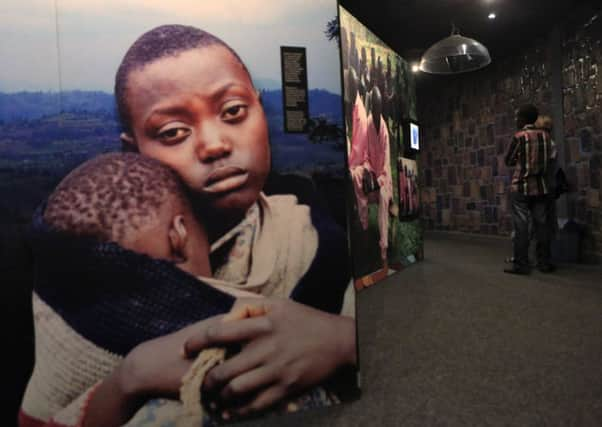France snubs Rwanda after accusations it aided killings


The African weekly, Jeune Afrique, quoted Mr Kagame as saying in an interview that both France and Belgium had played a “direct role … in the political preparation of genocide and participation in its execution”.
The French foreign ministry said France was “surprised by the recent accusations made by the Rwandan president”, and that French justice minister, Christiane Taubira, who had been due to travel to the Rwandan capital Kigali on today, would no longer attend the commemoration.
Advertisement
Hide AdAdvertisement
Hide Ad“These accusations are in contradiction with the process of dialogue and reconciliation that has gone on for several years between our two countries,” the ministry’s statement said.
Rwanda responded by accusing the French government of overreacting with the country’s foreign minister Louise Mushikiwabo saying: “For our two countries to really start getting along, we will have to face the truth. The truth is difficult, the truth of being close to anybody who is associated with genocide understandably is a very difficult truth to accept,”
Yesterday, hundreds of people attended a Mass in the Rwandan capital ahead of a week of official mourning to mark the 20th anniversary of the country’s genocide.
A genocide survivor who attended the Mass, Innocent Muhozi, said: “This Mass was about resurrection and I believe that one day, the souls of the people we lost will resurrect.”
Pope Francis, in his weekly address to the faithful in St Peter’s Square in the Vatican, also spoke of the anniversary.
He said: “On this occasion I would like to express my paternal closeness to the people of Rwanda, encouraging them to continue with determination and hope, the process of reconciliation that has already manifested its fruits, and the commitment of human and spiritual reconstruction of the country.”
The killings in Rwanda ended in July 1994 when the Rwandan Patriotic Front, a Tutsi-led rebel movement that entered the country from Uganda, marched on Kigali and seized control of the country.
Most of the victims of the genocide were attacked with machetes during 100 days of slaughter that began on 6 April 1994, shortly after Hutu president Juvenal Habyarimana was killed when his plane was shot down over the Rwandan capital.
Advertisement
Hide AdAdvertisement
Hide AdThe armed forces of Mr Kagame’s Rwandan Patriotic Front defeated government troops in 1994, stopping a three-month wave of bloodletting by ethnic Hutu extremists in which more than 800,000 minority Tutsis and politically moderate Hutus were killed.
Before the genocide, France was Rwanda’s main Western backer. But in its aftermath, their relations collapsed as Mr Kagame accused France of training and arming the Hutu militias who were the main force behind the slaughter – an accusation Paris always denied.
Latterly he had appeared to drop the issue, however, as France acknowledged mistakes and created a genocide investigation unit as the two countries began to rebuild their relationship.